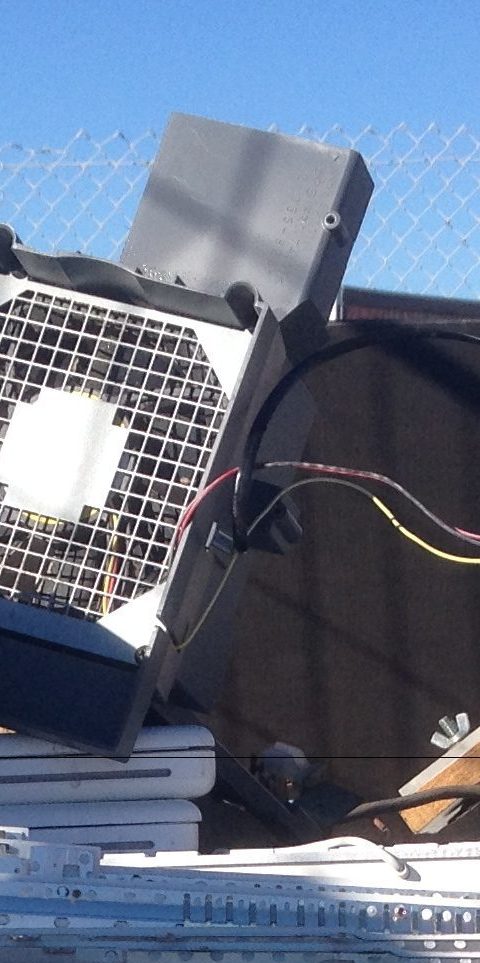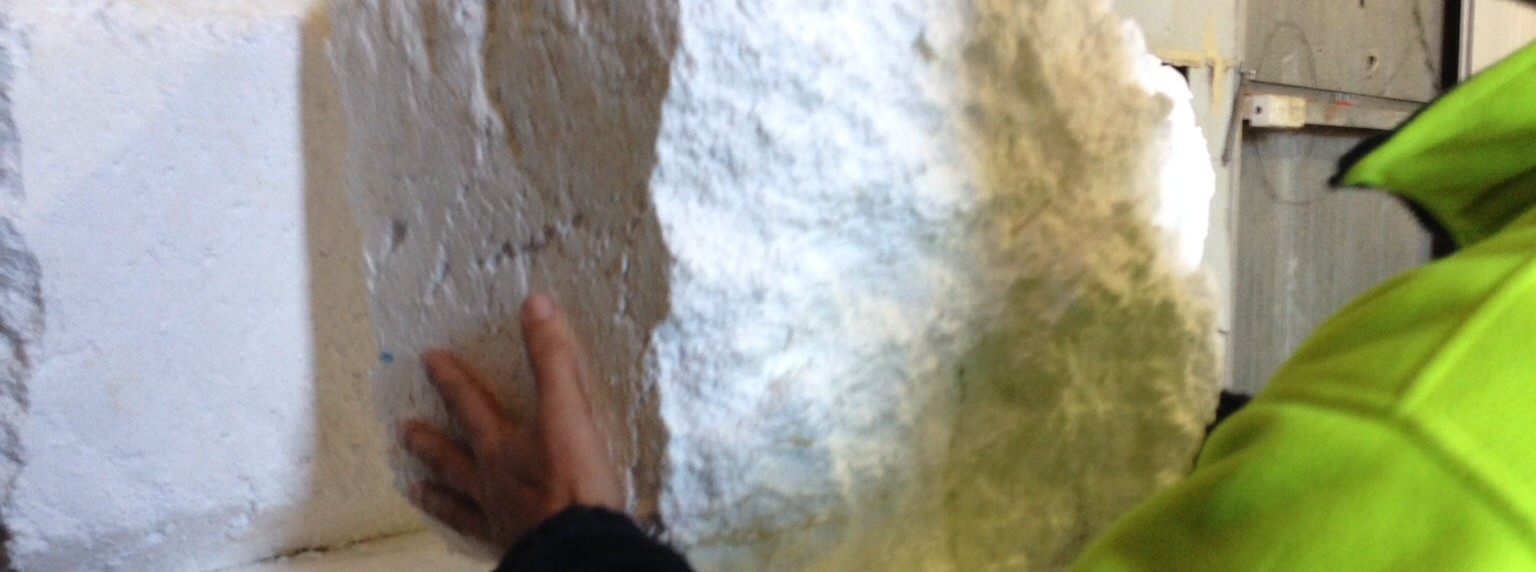All materials are weighed on entry. Over 97% is sent for recycling
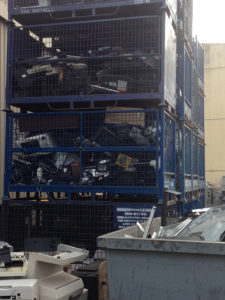
e-waste coming in from Council collections to Total Green Recycling
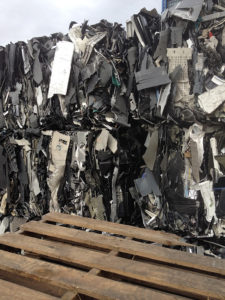
plastic casings ready for export and recycling
TV’s and computers have been in our lives for many years and they, with other forms of electronic equipment, are producing the fastest growing waste stream in the world. Australia does not manufacture the items, this happens primarily in countries with such as Korea and China with cheaper labor and overheads. When the items are used and need to be disposed of then the issues begin.
Over the years the physical items have become lighter and use less materials, however there are still a number of valuable and toxic materials to extract and separate. E-waste (electronic waste) contains valuable materials that can be recovered for recycling including iron, aluminium, copper, gold, silver, platinum, palladium, indium, gallium and rare earth metals. A Treaty between countries called the Basel Convention (that is control of trans-boundary Movements of Hazardous Wastes and Their Disposal), began in 1992 . The Convention is currently working on guidelines to address the movement of e-waste principally from developed to developing countries where it is frequently processed, and materials extracted for recycling.
So what happens in WA when electronic goods are disposed of? It is not illegal to landfill e-waste in WA but certainly not desirable. In 2011 the Federal Government passed an Act called Product Stewardship Act 2011 whereby there is recognition certain material and products need consideration in the ‘environmental, health and safety impacts of products in particular their disposal’ (Aust. Gmt. Dept. Environment web site). The Act is broad in target and intention to allow for different products to be included in the scope.
With the introduction of ‘digital’ TV’s, the obvious products for the Scheme would be their responsible disposal, considering many residents and businesses would switching hardware. The National Television and Computer Recycling Scheme through agreements between importers (electronic goods are all imported into Australia) and government regulators establish Arrangements to collect and recycle an increasing percentage of annual imports. ‘In 2015-16 it will be 50 per cent rising incrementally to 80 per cent in 2026-27.’ Australian Gmt. Dept. Environment web site
The Scheme has allowed e-waste recyclers such as Total Green Recycling (TGR) to be the ‘recycling’ component in an Arrangement for much of the e-waste collected under the Scheme in Perth. Total Green are a small family owned business, two brothers with a concern for the environmental impact of discarded e-waste and opportunists seeing value in much of the e-waste materials.
Starting in their parents garage, refurbishing computer monitors, extensive research led to establishing a business in 2008 of dissembling TV’s and computer hardware for recycling.
The separated material can be sent to many destinations. CRT screens to SA (Port Pirie lead smelter), plastics go to Hong Kong and then China, glass (WA recycled into road base), wood (Hazelmere for recycling), circuit boards (Eastern States then Japan- Mitsubishi Materials), metals- ferrous and non-ferrous Asian markets. The destinations will vary according to the best market offer but the regulations for the Scheme require a recycling rate of at least 90%. James from TGR maintains they have a rate of around 97%. Recyclers must now comply with the Standard AS 5377 from July 2016 in the modifications to the Scheme.
A recently purchased shredder at the TGR Welshpool site, dramatically improves efficiency. Initially e-waste coming in is weighed and more hazardous components removed manually (CRT screens, mercury lamps and batteries) and the remainder fed several times through a shredder, separator and over a magnet. Materials are separated according to size and type at various stages of the shredding. As James says, e-waste is such a complex waste stream, with parts and materials in often difficult arrangement making separation tedious and intense.
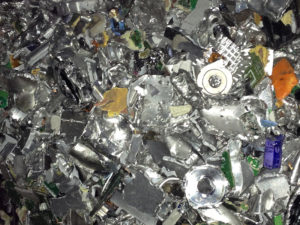
material coming from a shredder run
The source of product coming to Total Green includes collectors through the recycling Scheme, businesses upgrading, leasing companies turning over old stock, Councils collecting above the Scheme requirements and others.
An additional important relationship TGR have, is with a local computer refurbishment business Hybrid Hardware, who take viable machines and make them suitable for resale. This arrangement does not compromise the guarantee recyclers need to supply through the Scheme that products containing customer ‘information’ will be shredded not put out for reuse.


